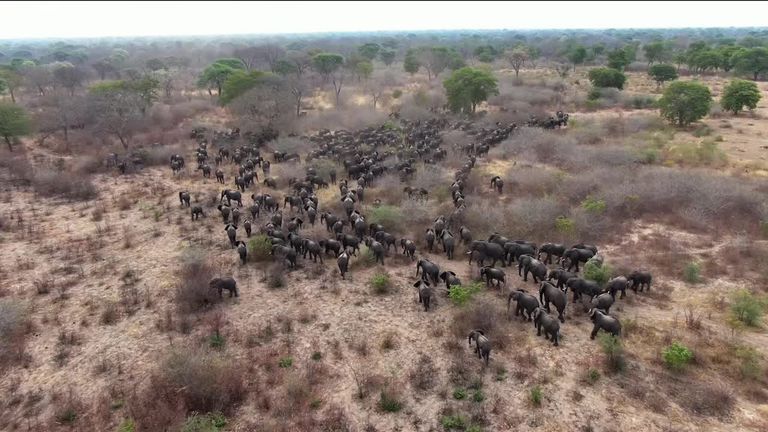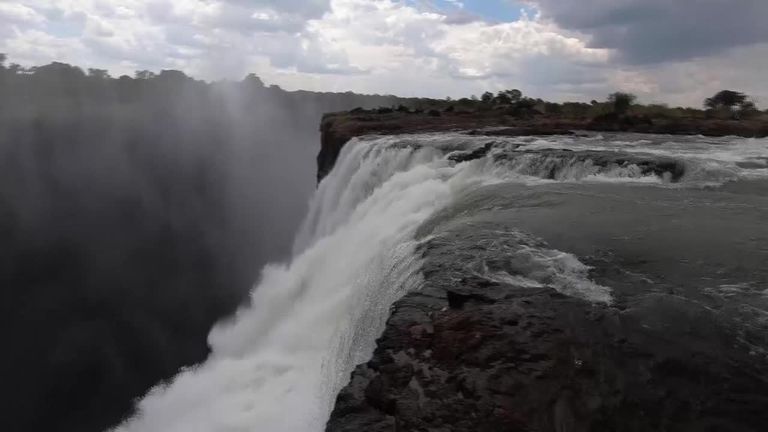Climate change: Elephants killing and injuring people due to drought
Conservationists are collaring the giant mammals and tracking them to try to avoid rising clashes between humans and animals.
Thursday 5 December 2019 10:45, UK
Elephants in Zambia are being collared to try to combat the rising conflict between wildlife and humans in the country as both struggle to survive a particularly devasting drought.
The lack of rain has led to animals encroaching on to human territory to seek out food and water.
Elephants have been trampling crops, tearing down fences, terrifying residents and even injuring and killing them.
But they are not the only wildlife problem. Crocodiles are lunging at people as both man and beast fight over the meagre amounts of water found in the bush.
And we spotted a hippo wandering around one of Livingstone's main roads - for hours. Hippos are among the most dangerous animals in Africa, killing several hundred people per year.
The desperation of the animals is matched by the increasing pressure on humans.
More than two million people in Zambia are estimated to be in need of emergency food help. And across the border in Zimbabwe, another seven million have been identified as urgently needing aid.
In the Zambian border town of Livingstone, residents told Sky News of nightly visits by elephants, often in small groups, moving through the town foraging for food.
People have instigated nightly armed patrols to try to ward off the animals and keep them at bay.
The fences around the Mosi-oa-Tunya National Park are trampled down by elephants in several places as the animals seek alternative ways of getting food and move into nearby communities.
The elephants hustle around lodges and enter people's back yards to snaffle mangoes growing there.
Petrified residents scream and throw stones, frightening the animals who then run at them, sometimes causing the injuries and there have been a few deaths.
"It's very dangerous for the human beings here," Gift Ngome told us, "we cannot stop them and it's easy for the elephant to kill people here."
The World Wide Fund for Nature (WWF) Zambia has been instrumental in developing fresh ideas to try to cut down the conflict between man and beast.
One idea is fitting the giant animals with collars and inbuilt GPS systems so their travel movements can be monitored.
Iris Van Der Meer from WWF Zambia said: "'The collaring is a crucial component because the data we gather from the collared elephants shows us where the elephants are moving, which areas they're using and which corridors are in place outside of the national park."
By learning about the elephant movements, conservationists hope to devise plans for more sustainable wildlife management - and avoid the rising clashes between humans and animals.
But there has to be more of a global strategy to try to tackle the challenge of annual water pressures which appears to be growing ever more acute.
Chief executive of WWF Zambia, Nachilala Nkombo, who was brought up in Livingstone, told Sky News: "We've seen a drastic reduction that's very scary and that tells me we are doing something wrong as a country; we are doing something wrong as a region and maybe doing something wrong globally and we need to do everything we can to reduce the carbon emissions to the minimum."









